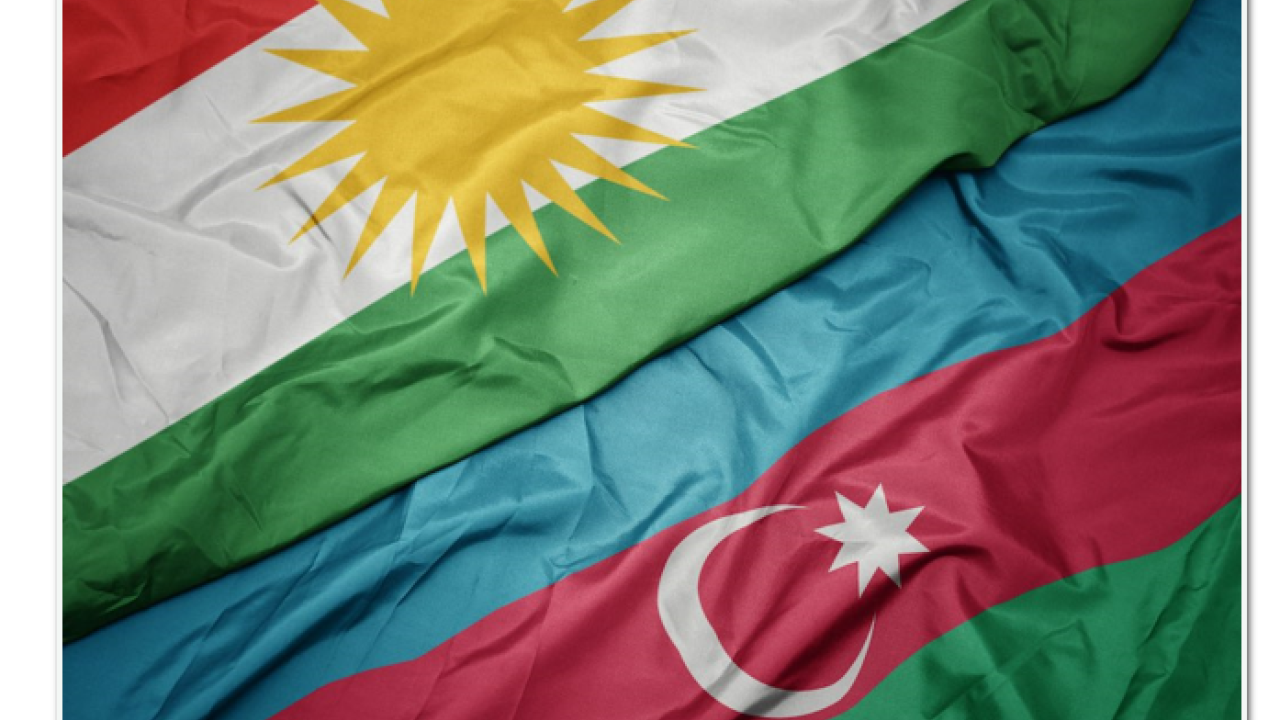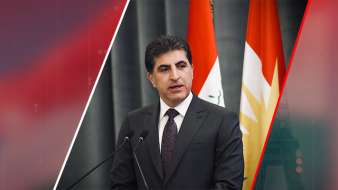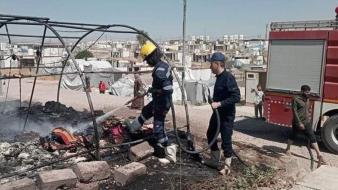Erbil-Baku Alliance Amid Regional Conflicts
By FAHIL ABDULBASIT ABDULKAREEM
Given the dynamic balances of the regional conflict between Israel and Iran, on the one hand, and Ankara's support for the Erbil-Baku Alliance, on the other, the new transnational approach of the presidency of the Iraqi Kurdistan region is considered a non-state actor at the regional level, and the involvement in unresolved conflicts with an international dimension (related to the alliances of the great powers) in the Caucasus region, this Eurasian region where the Kurds have had a scattered presence since the collapse of the Soviet Red Republic of Kurdistan (1923–1929). Hence the visit of Nechirvan Barzani, the President of Iraq's Kurdistan Region, to Baku, the capital of Azerbaijan, in mid-July of this year and his reception by Ilham Aliyev, the President of Azerbaijan, as well as the joint meeting between the two to discuss the broad outlines of this alliance at the state level.
In general, the meeting of Barzani and Aliyev is a consequence of the ongoing developments in the region, firstly: after the meeting of Barzani and Aliyev on the sidelines of the Munich Security Conference in Germany in February this year with the participation of the leaders of NATO, secondly: The meeting between Barzani and Aliyev in Ankara last June on the occasion of the inauguration of Recep Tayyip Erdoğan as the newly elected president of Turkey, and then the meeting between Barzani and Nasser Mammadov, the chargé d’affaires of the Azerbaijani embassy in Iraq, a few days after his return from Ankara at his presidential palace in Erbil. After the meeting between Barzani and Mammadov, the latter met with local Turkmen clan chiefs and political leaders in Kirkuk to discuss the northern oil centre in Kirkuk and the prospects for future Turkmen alliances in Kirkuk.
The Kurds and the Azeris: Historical Relations
With the beginning of the Barzan Revolution (1943–1945) under the leadership of Mustafa Barzani and the establishment of the Freedom Committee as a preparatory step to the establishment of the Kurdistan Democratic Party and its use as a political platform in regional and international forums to publicise the goals of the revolution, and after the arrival of Mustafa Barzani in Iranian Kurdistan in October 1945, who came from Iraqi Kurdistan, and the establishment of the Democratic Party of Iranian Kurdistan there And then the declaration of the Kurdish Republic of Mahabad in 1946 and its survival for a period of less than a year, and then the emigration of Mustafa Barzani with his companions (about 500 gunmen) in June 1947 to the Soviet Union after the collapse of the Republic and after the arrival of Mustafa Barzani in the Azerbaijani city of Baku in 1948 with the help of the Soviets, There began Mustafa Barzani, organise a national conference in the presence of the political elites of the Kurdish liberation movements in Iran and Iraq, and in the third session of the conference Mustafa Barzani gave a historic speech in which he explained the road map for the post-World War II phase; this speech is later referred to in political and academic forums as the Baku speech of General Mustafa Barzani, and the outlines of the same speech are translated in the literature of the Kurdish liberation movement, especially the Kurdistan Democratic Party in Iraq, under the name of Barzani's approach (Rêbaza Barzanî).
Erbil-Baku Alliance: Mutual Economic Interests
From an economic point of view, both parties, Erbil and Baku, seek access to maritime transit routes to bring their natural gas to world markets, more specifically to the European market, and the alliance of the two is mainly aimed at overcoming the geopolitical obstacles in front of them, thus consolidating trade relations between them, although they do not share borders. In its effort to ally with Baku, Erbil is trying to export its natural gas to Europe through Azerbaijan's Trans-Anatolian Gas Pipeline (TANAP) project. This project was launched in 2011 by Baku and Ankara and covers a distance of 1,850 km from eastern Turkey (the city of Ardahan) to western Turkey (the city of Edirne). This project will serve as a link between two pipelines. On the eastern side, it will be connected to the South Caucasus Pipeline-SCP, which transports the produced natural gas. Azerbaijan's Shah Deniz-2 field, which extends across the Caspian Sea to the borders of Turkey and Georgia, and it (TANAP project) will use from the western side the Trans-Adriatic Pipeline TAP, which has been under construction since March 2015 to open a southern corridor for the delivery of natural gas to Europe.
Although Baku, through its Foreign Ministry, invited Baghdad to join the Trans-Anatolian Azerbaijan Pipeline (TANAP) in 2014, the official response from Baghdad is not yet known. The only indication from which Baghdad's position on joining the aforementioned Azerbaijan Pipeline can be deduced is the statement by the president of Iraq's Kurdistan Region during his recent visit to Baku that what Erbil is seeking in its economic-commercial alliance with Baku is based on Baghdad's regional energy plans. In other words, what Baku is seeking through the establishment of a joint economic council with Erbil is not only access to the markets of Iraq's Kurdistan Region, but rather access to the promising markets of the Gulf, especially after the adoption by the Iraqi Council of Ministers of the strategic development project that starts from the Iraqi city of Basra and goes through ten other Iraqi cities to Turkey and from there to Europe, as one of the lines in the project of the global trade corridor between East and West. And what strengthens Baku's strategy in the global trade arena, as it is within the lines of the global North-South trade corridor project, despite its regional conflicts with both Armenia and Iran, and its attempt to build the Zangazur Corridor in 2020, connecting Azerbaijan directly to Turkey via the Nakhichevan Autonomous Republic, after the recent Nagorno-Karabakh war.
However, the challenges that stand in the way of Erbil's ambitions are shocking. First, the majority of the ruling Shiite political forces in Baghdad are sceptical of the approaches of the presidency of the Iraqi Kurdistan Region (which is governed by the Kurdistan Democratic Party), since its revenues are managed outside the Iraqi federal budget, especially since there is no federal legal structure for such projects. Second, the lack of a national consensus within the Kurdish House on the approach of the regional presidency to oil and gas projects, and thus the opposition of the Patriotic Union of Kurdistan, which controls the eastern part of the Kurdistan Region of Iraq, where most of the natural gas fields are located (the Khormor and Chamchamal fields, with a production capacity of up to 450 million cubic metres per day). In particular, following the decision of the ICC International Court of Arbitration in Paris, which ruled in favor of Iraq against Turkey on the basis of the provisions of the 1973 Iraq-Turkey Pipeline ITP Agreement, that the Turkish government must comply with Baghdad’s instructions regarding the transit of crude oil exported from Iraq. (including the Kurdistan Region of Iraq) to all storage and disposal centres and to the final destination (marketing).
Erbil-Baku Alliance: Israel's Strategy Against Iran
At present, any alliance between Erbil and Baku automatically serves Israel's geopolitical interests at the regional level, especially in the fight against Iran. First, in recent years, both Azerbaijan and Iraq's Kurdistan region have become strategic focal points for Israel in its conflict with Iran, as both regions share borders with Iran. and Israel, in this endeavour, seeks a tactical balance in terms of regional threats to its entity, in accordance with the “death by a thousand cuts” strategy against Iran, i.e., by providing military and intelligence support to the two regions in order to control the axis of resistance in Gaza, Lebanon, and Syria, which is financially and militarily supported by Iran. Second, Israel's support for the Azeri and Kurdish national movements. On the Azerbaijani side, Baku is taking advantage of this support to build the strategic Zangazur corridor, which will directly connect Azerbaijani territories with Turkey through the Azerbaijani Republic of Nakhichevan. On the other hand, Baku tries to support the Azeri national movements in the Azeri regions in the north of Iran (the provinces of East and West Azerbaijan) when they try to oppose Tehran with their demand for independence or for a return to the arms of Mother Azerbaijan (the Baku Authority).
To show that the interests of Kurdish nationalism are compatible with the interests of Azeri nationalism in the Caucasus region, Baku, as part of its propaganda campaigns in its recent war with Armenia, has begun to portray the Yazidi Kurds under the authority of Armenia as the largest minority there, numbering some 500,000 Kurds (Yazidis) as persecuted by the Armenian authorities!
As for the Iraqi Kurdistan region, despite the military and intelligence bases there of Iranian opposition forces, the Democratic Party of Iranian Kurdistan, Komala, and the Free Life Party (Pzhak), Iran fears that this alliance (Erbil-Baku) will expose it to a stronger regional siege. Especially if Ankara's recent efforts at rapprochement with Israel are crowned with success, in addition to Israel's continued efforts under the Abraham Accords with the Persian Gulf states and its attempt to include the Kurdistan Region (Kurdistan Democratic Party of Iraq) in these agreements by holding a peace conference in Erbil in September 2021 attended by some 300 clan chiefs and Iraqi political leaders of the Sunni sect.
Therefore, in light of recent regional developments, Iran can be expected to take the initiative and use all its economic and political resources when it is put under more pressure in the region by the Erbil-Baku alliance by trying to worsen the economic situation of Iraq's Kurdistan region, which is already in crisis due to foreign debt and disagreements between Erbil and Baghdad, by trying to obstruct the mechanism for implementing the articles of the federal budget law, by using its proxies in the (state) political blocs in Baghdad and the Iraqi Kurdistan Region, and by obstructing the ongoing parliamentary deliberations on the adoption of the federal law on oil and gas in the Iraqi parliament.
On the other hand, it is possible that Iran is exploiting the presence of bases of Iranian opposition groups in Iraq's Kurdistan Region by invoking the terms of its security agreement with Baghdad, which the two countries signed last March, as stated in Iranian Chief of General Staff Mohammad Bagheri's July 2023 warning to the Iraqi government regarding the presence of Iranian Kurdish opposition groups in Iraq's Kurdistan Region. Especially considering the fact that Baghdad is approaching the deadline for implementing its commitment next September (September 2023). The contractual agreement stipulates that Iranian armed opposition groups in Iraq's Kurdistan Region may not use the region's territory as a launching point for their cross-border attacks on Iranian territory.












